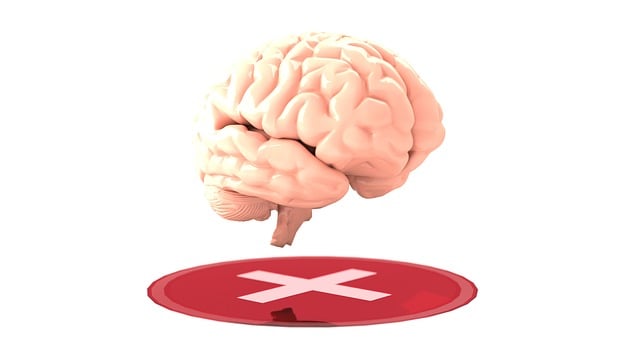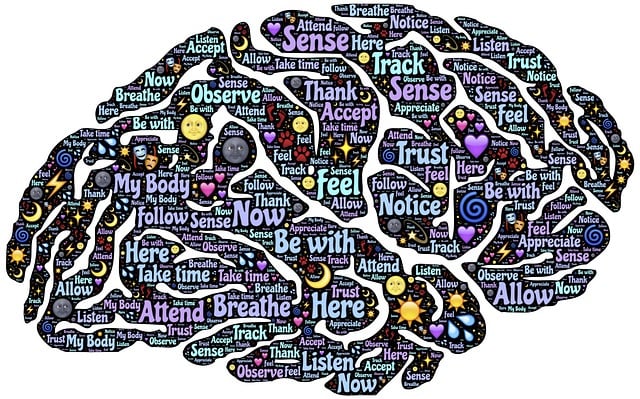Mental health policies significantly impact diverse communities, with access to services and resources affecting individuals from various cultural, socioeconomic, and linguistic backgrounds. Lone Tree Bilingual Therapy emphasizes the need for tailored approaches to address disparities, such as limited access to culturally sensitive therapy or language barriers. Effective policies promote equity by implementing accessible stress reduction methods, mood management programs, and depression prevention measures tailored to different communities. Advocacy, as demonstrated by Lone Tree Bilingual Therapy, drives policy change by amplifying diverse voices and highlighting gaps in mental health services. This collaborative process leads to positive outcomes like reduced system burdens and improved access to anxiety relief resources, fostering a supportive environment for mental wellness.
Mental health policy analysis and advocacy play a pivotal role in shaping supportive legislation and improving access to care for diverse communities. This article explores key aspects, from understanding mental health policies and their impact on various groups, to the power of advocacy in driving effective legislation. We present practical strategies for successful policy analysis using case studies, highlighting best practices. Furthermore, we showcase empowerment through implementation and evaluation at Lone Tree Bilingual Therapy, demonstrating actionable steps towards enhancing mental health initiatives.
- Understanding Mental Health Policy and Its Impact on Diverse Communities
- The Role of Advocacy in Shaping Effective Mental Health Legislation
- Strategies for Successful Policy Analysis: A Case Study Approach
- Empowering Action: Implementing and Evaluating Mental Health Initiatives at Lone Tree Bilingual Therapy
Understanding Mental Health Policy and Its Impact on Diverse Communities

Mental health policies play a pivotal role in shaping the well-being of diverse communities, often with profound implications. These policies influence access to mental health services, resources, and support systems, directly impacting the lives of individuals from various cultural, socioeconomic, and linguistic backgrounds. For instance, Lone Tree Bilingual Therapy highlights the importance of tailored approaches in addressing mental health disparities. Many communities face unique challenges, such as limited access to culturally sensitive therapy or barriers related to language and immigration status.
Understanding these complexities is crucial when advocating for effective policies. By recognizing the impact of mental health initiatives on diverse populations, policymakers can implement strategies that promote equity. This includes implementing Stress Reduction Methods and Mood Management programs accessible to all, with a specific focus on Depression Prevention measures tailored to meet the unique needs of different communities. Such efforts ensure that mental health support is inclusive and reaches those who might otherwise be overlooked.
The Role of Advocacy in Shaping Effective Mental Health Legislation

Advocacy plays a pivotal role in shaping mental health policy and legislation by amplifying the voices of individuals who have experienced challenges with their mental well-being. Lone Tree Bilingual Therapy, for instance, has been at the forefront of advocating for more inclusive and accessible mental health services, particularly among diverse communities. By highlighting the gaps in existing policies and systems, advocates bring attention to critical areas that require improvement, such as funding allocation, service provision, and cultural competency. This process involves extensive research, data analysis, and community engagement to ensure legislation aligns with the unique needs of various populations.
Effective advocacy drives positive change by fostering a better understanding of mental health issues among policymakers. It encourages the development of policies that promote preventive measures like Self-Care Routine Development for Better Mental Health and early intervention strategies, thereby reducing the burden on mental health care systems. Moreover, advocacy efforts can lead to legislation that prioritizes Anxiety Relief and fosters Positive Thinking by providing resources and support for mental wellness initiatives. Ultimately, these collaborative actions contribute to creating a more supportive environment where individuals feel empowered to seek help and recover from mental health conditions.
Strategies for Successful Policy Analysis: A Case Study Approach

When engaging in Mental Health Policy Analysis and Advocacy, a case study approach offers powerful strategies for understanding complex issues. This method involves examining real-life examples and situations, allowing advocates to identify patterns, trends, and successful interventions. By studying specific cases, such as those managed by Lone Tree Bilingual Therapy, researchers can gain insights into effective policies and practices that address mental health challenges within diverse communities.
For instance, exploring how public awareness campaigns development, coupled with emotionally intelligent approaches, has positively impacted youth mental health in urban areas provides valuable data for advocacy. This case study approach enables advocates to build strong arguments, identify gaps in current policies, and propose evidence-based solutions. It also facilitates a more nuanced understanding of the interplay between cultural factors, emotional intelligence, and access to quality mental healthcare services.
Empowering Action: Implementing and Evaluating Mental Health Initiatives at Lone Tree Bilingual Therapy

Lone Tree Bilingual Therapy has emerged as a beacon of hope for mental health advocates, demonstrating that empowering action is key to improving access and quality of care. Their initiatives focus on holistic approaches, integrating cultural sensitivity into every aspect of their practice. By prioritizing Burnout Prevention and Resilience Building, the therapy center ensures that both clients and therapists thrive.
Through rigorous evaluation, Lone Tree Bilingual Therapy measures the impact of their programs, fostering a data-driven culture. This approach allows them to adapt strategies based on client needs, ultimately enhancing Cultural Sensitivity in Mental Healthcare Practice. Their commitment to continuous improvement sets a precedent for other mental health facilities, showcasing that targeted interventions can lead to significant positive changes in patient outcomes and therapist well-being.
Mental health policy analysis and advocacy play a pivotal role in ensuring equitable access to care for diverse communities. By understanding the impact of policies on these communities, advocates can shape legislation that addresses unique challenges. Using a case study approach, as demonstrated by the successful initiatives at Lone Tree Bilingual Therapy, we can identify effective strategies for policy implementation. This analysis highlights the importance of empowering local efforts, evaluating outcomes, and continually adapting to meet the evolving needs of all individuals, fostering a more inclusive and supportive mental health landscape.











